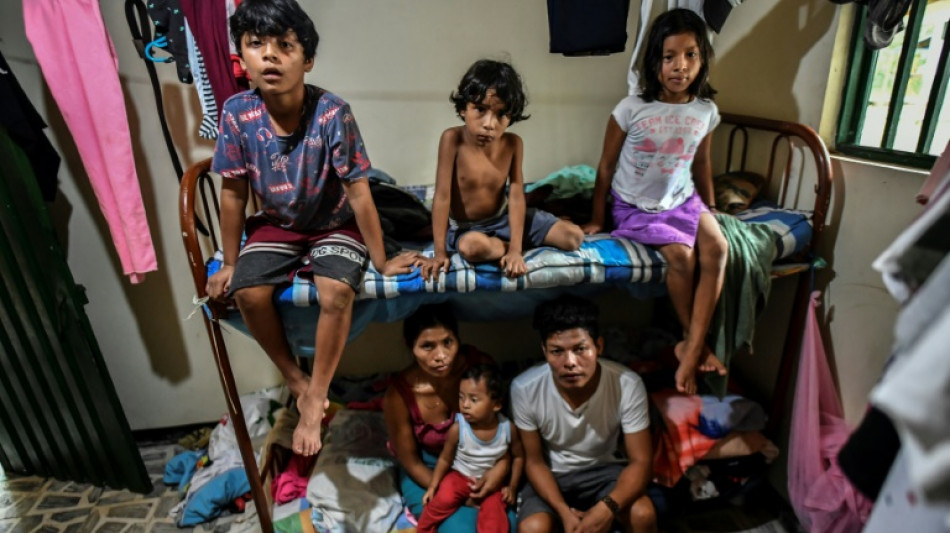
-
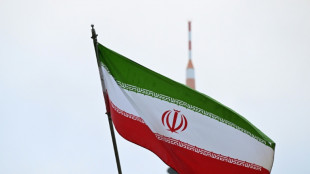 Iran hangs man as Israeli spy after 'unfair' trial: activists
Iran hangs man as Israeli spy after 'unfair' trial: activists
-
Stock markets mostly rise ahead of US economic data, tech earnings
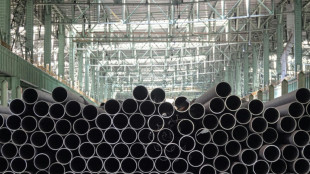
-
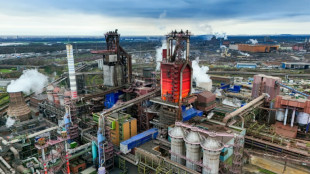 German growth better than expected but tariff turmoil looms
German growth better than expected but tariff turmoil looms
-
Sinner denies beneficial treatment in doping scandal ahead of Rome return

-
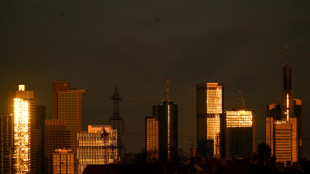 Eurozone economy grows more than expected despite US tariff turmoil
Eurozone economy grows more than expected despite US tariff turmoil
-
Toulouse hooker Mauvaka out of Champions Cup semi

-
 Germany's next finance minister, 'bridge-builder' Lars Klingbeil
Germany's next finance minister, 'bridge-builder' Lars Klingbeil
-
Mehidy century puts Bangladesh in command against Zimbabwe

-
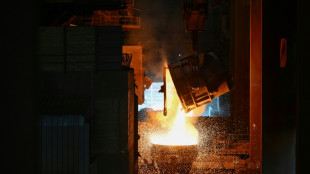 Steelmaker ArcelorMittal warns of uncertainty
Steelmaker ArcelorMittal warns of uncertainty
-
Vietnam's Gen-Z captivated by 50-year-old military victory
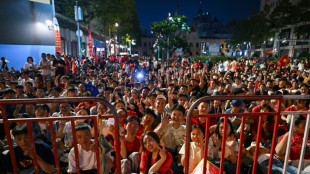
-
 Moroccan-based cardinal says Church does not need Francis 'impersonator'
Moroccan-based cardinal says Church does not need Francis 'impersonator'
-
US official tells UN top court 'serious concerns' over UNRWA impartiality
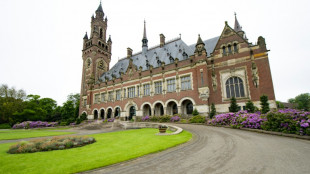
-
 Jeep owner Stellantis suspends outlook over tariffs
Jeep owner Stellantis suspends outlook over tariffs
-
New Zealand, Phillippines sign troops deal in 'deteriorating' strategic environment

-
 Aston Martin limits US car imports due to tariffs
Aston Martin limits US car imports due to tariffs
-
Pakistan says India planning strike as tensions soar over Kashmir
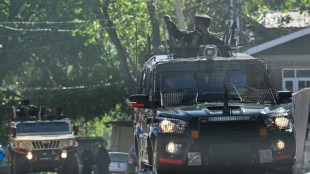
-
 Australian triple-murder suspect allegedly cooked 'special' mushroom meal
Australian triple-murder suspect allegedly cooked 'special' mushroom meal
-
Most stock markets rise despite China data, eyes on US reports
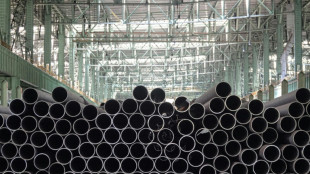
-
 TotalEnergies profits drop as prices slide
TotalEnergies profits drop as prices slide
-
Volkswagen says tariffs will dampen business as profit plunges

-
 Jeep owner Stellantis suspends 2025 earnings forecast over tariffs
Jeep owner Stellantis suspends 2025 earnings forecast over tariffs
-
China's Shenzhou-19 astronauts return to Earth

-
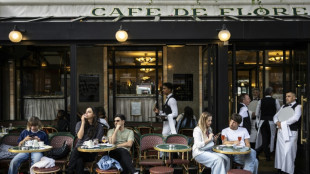 French economy returns to thin growth in first quarter
French economy returns to thin growth in first quarter
-
Ex-Premier League star Li Tie loses appeal in 20-year bribery sentence

-
 Belgium's green light for red light workers
Belgium's green light for red light workers
-
Haliburton leads comeback as Pacers advance, Celtics clinch

-
 Rahm out to break 2025 win drought ahead of US PGA Championship
Rahm out to break 2025 win drought ahead of US PGA Championship
-
Japan tariff envoy departs for round two of US talks
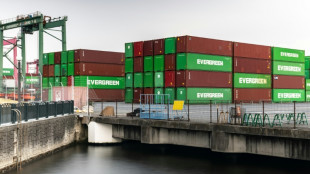
-
 Djurgarden eyeing Chelsea upset in historic Conference League semi-final
Djurgarden eyeing Chelsea upset in historic Conference League semi-final
-
Haliburton leads comeback as Pacers advance, Pistons stay alive

-
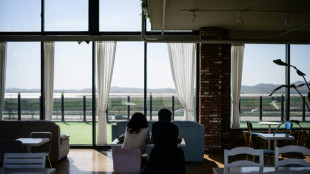 Bunker-cafe on Korean border paints image of peace
Bunker-cafe on Korean border paints image of peace
-
Tunics & turbans: Afghan students don Taliban-imposed uniforms
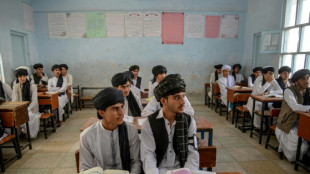
-
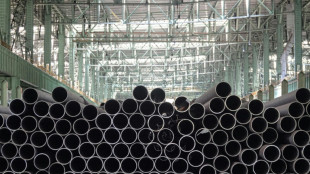 Asian markets struggle as trade war hits China factory activity
Asian markets struggle as trade war hits China factory activity
-
Norwegian success story: Bodo/Glimt's historic run to a European semi-final

-
 Spurs attempt to grasp Europa League lifeline to save dismal season
Spurs attempt to grasp Europa League lifeline to save dismal season
-
Thawing permafrost dots Siberia with rash of mounds

-
 S. Korea prosecutors raid ex-president's house over shaman probe: Yonhap
S. Korea prosecutors raid ex-president's house over shaman probe: Yonhap
-
Filipino cardinal, the 'Asian Francis', is papal contender

-
 Samsung Electronics posts 22% jump in Q1 net profit
Samsung Electronics posts 22% jump in Q1 net profit
-
Pietro Parolin, career diplomat leading race to be pope

-
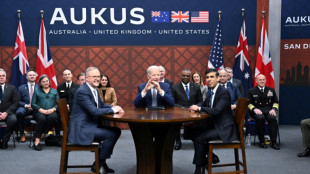 Nuclear submarine deal lurks below surface of Australian election
Nuclear submarine deal lurks below surface of Australian election
-
China's manufacturing shrinks in April as trade war bites
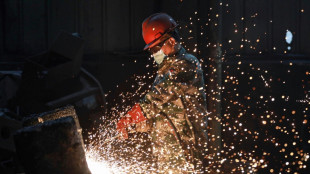
-
 Financial markets may be the last guardrail on Trump
Financial markets may be the last guardrail on Trump
-
Swedish journalist's trial opens in Turkey

-
 Kiss says 'honour of a lifetime' to coach Wallabies at home World Cup
Kiss says 'honour of a lifetime' to coach Wallabies at home World Cup
-
US growth figure expected to make for tough reading for Trump
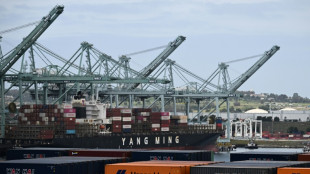
-
 Opposition leader confirmed winner of Trinidad elections
Opposition leader confirmed winner of Trinidad elections
-
Snedeker, Ogilvy to skipper Presidents Cup teams: PGA Tour

-
 Win or bust in Europa League for Amorim's Man Utd
Win or bust in Europa League for Amorim's Man Utd
-
Trump celebrates 100 days in office with campaign-style rally


Ghost towns left in the wake of fighting for Colombia's drug spoils
Empty streets and hurriedly abandoned homes pocked with bullet holes: a war for control of the lucrative drug trade is laying waste to rural communities along Colombia's Pacific-bound cocaine export route.
Tens of thousands have fled as fighting between guerrillas and narcos vying for control of farmland and smuggling routes has shifted from the mountains to right in the midst of rural communities.
Some of the fighters set up operations bases in the newly abandoned homes.
"What we have had to go through, see and hear is unspeakable," a bitter-ender who declined to give his name, told AFP in the village of La Colonia, near the port city of Buenaventura, where armed groups recently moved in.
The civilians who stay behind "are confined, threatened, frightened," added Diego Portocarrero, who himself had escaped La Colonia for Buenaventura in February.
At highest risk are villages on the banks of the Calima and San Juan rivers -- key arteries for cocaine smuggling via the Pacific to the United States.
Homes in these communities pay testament to the battle: riddled with bullet holes, boarded up and locked with rudimentary chains.
Buildings sport the competing graffiti tags of the main protagonists in the fighting: the ELN guerrilla group and the Gulf Clan drug cartel (AGC).
As control changes hands, the tag of the victor is simply spray-painted over that of their rival.
- Recent phenomenon -
Nancy Hurtado, 52, is one of those who fled to Buenaventura in April after an attack on her village of San Isidro.
"They came in shooting, taking people out of houses, children too," she told AFP.
Life in exile is hard -- sharing space with hundreds of others in a sports stadium with improvised kitchens, laundry rooms and sleeping on the floor.
But the alternative is infinitely worse.
"That they catch you, chop you up, throw the pieces in a bucket... who wants to die like that?" asked Hurtado, who fashioned a make-shift bedroom with blankets and towels thrown over a netted football goal.
Dozens of members of the Wounaan Nonam ethnic group have taken refuge at the offices of an indigenous radio station in the city, where they have access to water for five hours a day, every other day.
They fled from fighting in the nearby village of Bajo San Juan in February.
"All that stayed behind was our homes, the dogs, the chickens," said Edgar Garcia, 45.
Juan Manuel Torres, a researcher at the Peace and Reconciliation Foundation (Pares), said armed groups settling among communities, "even camouflaged and armed," was a relatively recent and ever-more common phenomenon.
"They take over houses in the middle of the community, they don't have camps like before, and this is a... factor that makes some (inhabitants) move," he said.
This is happening in spite of the 2016 peace agreement that disarmed the FARC guerrilla group and was meant to end the violence after nearly six decades of internal conflict.
Many of the areas abandoned by the FARC have since become battle grounds for the ELN, drug cartels and FARC dissidents who rejected the 2016 pact.
- Always 'the losers'-
Nestled between the ocean, the jungle and mangrove forests, the city of Buenaventura has seen some 300,000 people displaced by violence in the past six years.
Many live in shelters; nine in ten are AfroColombian.
On top of a poverty rate of 41 percent and unemployment at almost 20 percent, the displaced also have to contend with the violence and extortion meted out by gangs that operate from the port.
The number of homicides in Buenaventura rose from 73 in 2017 to 195 last year, official data shows.
Often, dismembered bodies are thrown into the sea, according to witness accounts and rights groups.
The displaced express little hope of better days emerging from presidential elections this week, in which they cannot participate anyway as they are exiled from the areas where they are registered to vote.
"We will always be the losers" in an ongoing tug-of-war for territory and influence, said Portocarrero.
A.Jones--AMWN